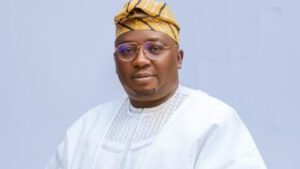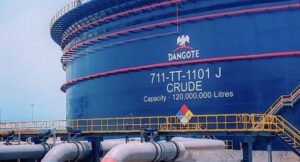
Energy transition: Seplat Energy advocates ‘just transition’ for Africa
Leading indigenous energy company, Seplat Energy Plc has said its greatest business opportunity ahead of it is to supply the right mix of energy to support Nigeria’s growth.
In doing so, the company said it remained committed in making positive social impacts and contributing to Nigeria’s achievement of the United Nations’ Sustainable Development Goals (SDGs).
Mr. Effiong Okon, the Director, New Energy at Seplat said this while delivering a keynote at the 45th edition of the Society of Petroleum Engineers (SPE) Nigeria Annual International Conference and Exhibition (NAICE) themed: ‘Operationalising a Clean Energy Transition for Sustainable Development in Africa’ on Wednesday.
Okon, who represented Mr. Roger Brown, CEO Seplat Energy, said for a successful energy transition in Africa: “We must support the goals of the Paris Agreement and align with society’s objective to get the world to net zero carbon emissions by 2050, if not before.; as lower-emission hydrocarbons, particularly gas, have a role to play during energy transition by replacing diesel generators and biomass.
“Though hydrocarbon export will continue to be a mainstay of the Nigerian economy and will fund Nigeria’s growth as well as its energy transition, the Oil & Gas Industry has a role to play as a responsible steward of Nigeria’s oil and gas assets, including those that might be divested.”
According to him, in the longer term, the reality and threat of climate change requires the decarbonisation of energy systems in Nigeria, but sustainability and transparency must be at the heart of business operations and decision making.
Speaking on ‘just transition’ Okon noted that there is the need to balance decarbonisation with development, adding that: “Global warming and climate volatility are existential threats to humanity and nature. The world needs to accelerate efforts to achieve net-zero and mitigate warming effects. Africa’s climate, agriculture and people will suffer most in the coming decades. The problem has been caused by emissions from developed-world countries that have enjoyed their ‘carbon privilege’ and built strong economies on fossil fuels.
“However, we need to consider the reality in the continent. Poverty, hunger, unemployment, population growth abound here. Africa contributes just 3.3% of global emissions. Most Africans (600 million) lack access to reliable energy, which hampers development. Use of inefficient and costly diesel / petrol generators saps financial resources, drains foreign exchange and creates pollution.
“Biomass use for cooking causes deforestation, health problems and nearly 0.5 million premature deaths in Sub-Saharan Africa every year. The developed-world’s drive to impose decarbonisation on Africa will constrain development.”
Making the case for gas, the Seplat Director said the developed-world pressures to abandon fossil fuels are being pushed back by recognition of the need to drive development with reliable energy.
COP27, he explained, would focus on how best to achieve this balance for the benefit of tomorrow’s 2.5 billion Africans, of whom 500 million will be Nigerian, adding that given current low emission levels, Africa can achieve a disproportionate improvement in living stands through a globally small increase in emissions from cleaner gas for power and cooking.
He called on players in the continent to leverage oil and gas revenues to cash flow transition, but also tap international transition funding where available, hence the need for good corporate governance.
The Seplat Energy executive therefore urged industry operators to focus on quick wins first, which are: decarbonising the upstream and focus on producing ‘advantaged’ low-carbon barrels with low Scope ½; end routine flaring and redeploy gas to power operations and local communities; and deploy renewables to power operations where possible, and share with local communities.
He added: “We need to develop gas as transition fuel (Gas-to-power to replace diesel, move along value chain into power, e.g. business parks, large buildings; hybrid gas-to-power / solar offerings; and bottled gas products for domestic use. In addition, we can expand into renewables (hydro, wind, geothermal, blue/green hydrogen; and develop and monetise carbon capture and storage.”



